Fall/Winter 2025-26
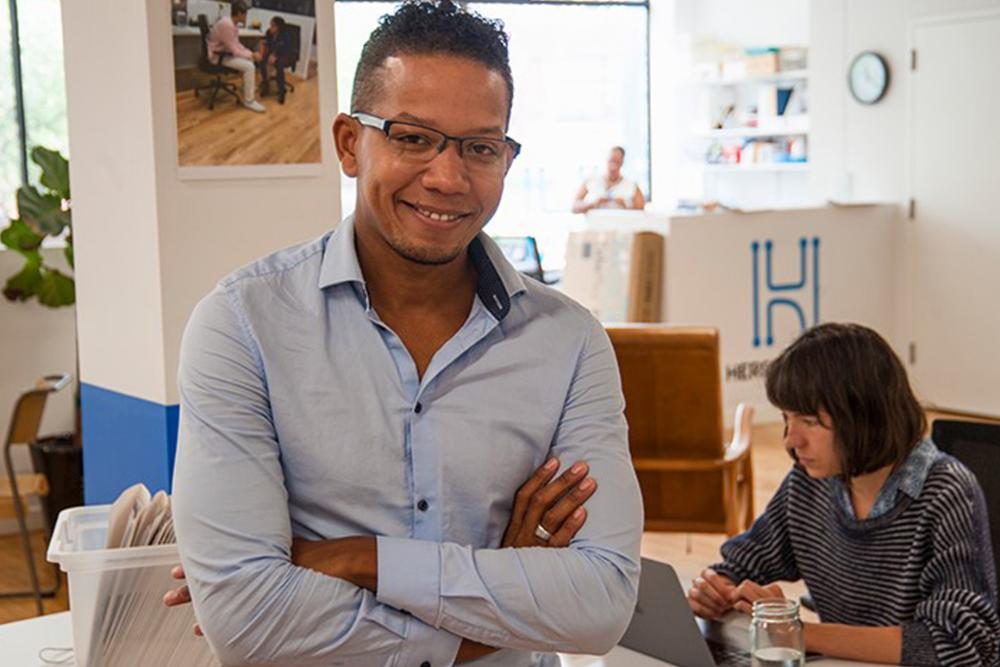
Marist alumnus Dr. Edward Summers ’04/’06M, founder of Bronx-based the Thinkubator, has been named to Robin Hood’s Power Fund, a new initiative supporting leaders of color and their organizations.
Marist alumnus Dr. Edward Summers ’04/’06M, founder of Bronx-based the Thinkubator, has been named to Robin Hood’s Power Fund, a new initiative supporting leaders of color and their organizations. Robin Hood, New York City’s largest poverty-fighting organization, funds impactful and scalable solutions to lift families out of poverty. The Power Fund invests in leaders who share Robin Hood’s mission of increasing economic mobility while championing racial and economic justice. Summers has dedicated his career to economic development in his hometown of the Bronx.To combat the barriers leaders of color face in accessing philanthropic dollars, the Power Fund takes a three-fold approach: a meaningful investment in an organization; targeted capacity-building and technical support; and a self-directed investment in the leader’s own development and elevation. The Power Fund was seeded with an initial investment of $10 million by Robin Hood and investors such as the Stavros Niarchos Foundation, BlackRock, and Capital One.In 2020, Summers founded the Thinkubator, an innovative nonprofit that provides education, career, and work-based learning opportunities for low-income youth in the Bronx. The Thinkubator harnesses their creativity through a youth-led design thinking consultancy, internships, workforce training, career development, job placement, a Youth Council, educational programming, and advocacy. With financial support from the Power Fund, the Thinkubator can now enhance and expand its work. Said Summers, “I am excited, humbled, and honored by this opportunity to elevate the work and impact of the Thinkubator. I look forward to the transformational impact this funding will have on our organization and on the youth and communities we serve.”A two-time Marist graduate, Summers served for seven years as Presidential Fellow and a member of the senior leadership team under Marist President Dennis J. Murray. He is currently on the College’s Alumni Executive Board as well as its Diversity & Inclusion Alumni Advisory Board.
21 Jul 2021
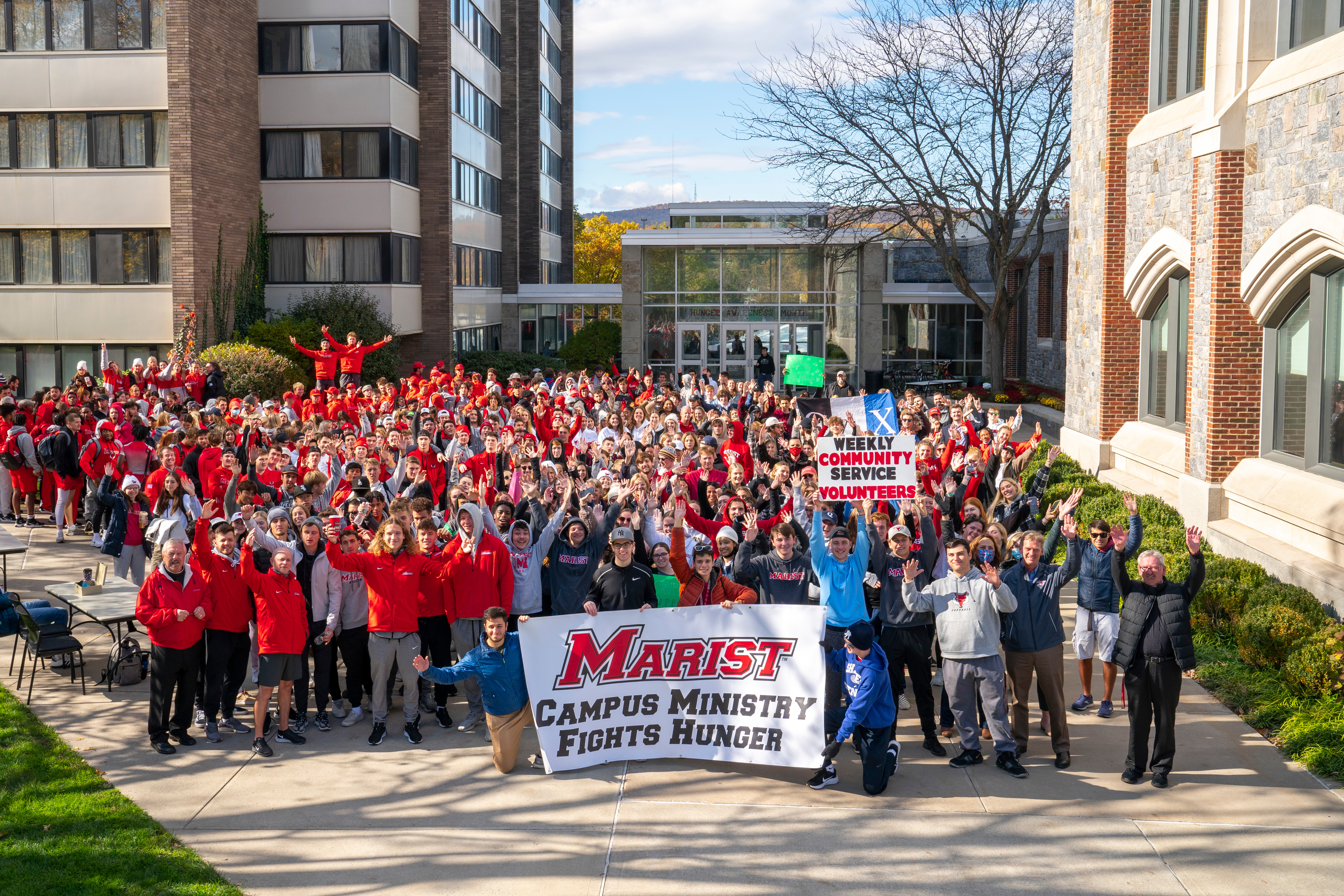
The Hunger Walk takes place for the 29th year.
On Nov. 3, Marist students continued the tradition of the Hunger Walk for the 29th year. The walk was part of Hunger Month, a program organized each November by Campus Ministry.More than 600 people took part in the approximately 30-minute walk around the campus. Students donated $3 each. A total of $1,167 was raised, according to Br. Michael Flanigan, FMS, who has coordinated the Hunger Walk for the past 13 years.Additional activities during Hunger Month include the collection of non-perishable food and Buck Hunger, the collection of donations of a dollar or more.The food is donated to the food pantry at Dutchess Outreach of Poughkeepsie. The cash donations are made to Bread for the World, Lazarus House (Lawrence, MA), the Guadalupe Middle School in Brownsville, TX, and the Lunch Box Soup Kitchen at Dutchess Outreach.
16 Nov 2021
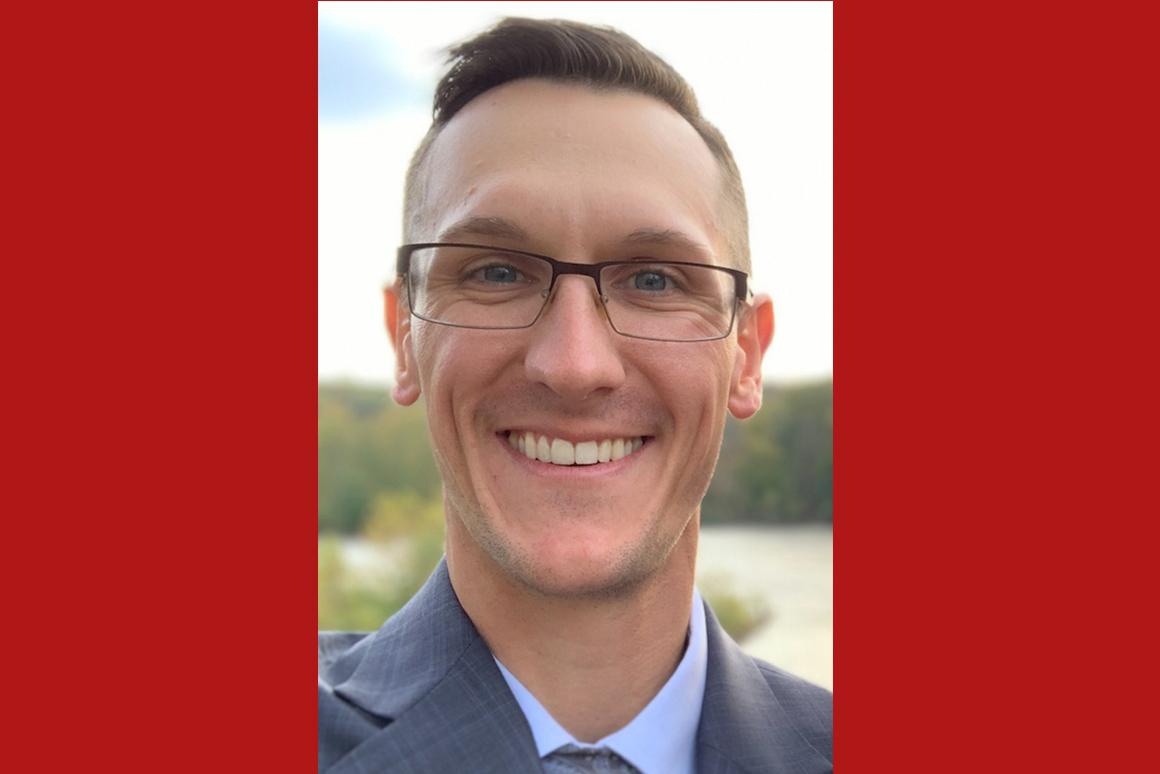
Matthew Szymaszek, DO, has been helping people fight the coronavirus from the outset of the pandemic.
Matthew Szymaszek, DO, has been helping people fight the coronavirus from the outset of the pandemic.The Simsbury, CT, native and long-distance runner for the Marist track and field team graduated in 2007 but returned to the College to finish research that he started with Dr. Zofia Gagnon, a former associate professor of environmental science, before taking the MCAT — the Medical College Admission Test, a standardized test that is part of the medical school admissions process — in 2008. He began medical school at the Lake Erie College of Osteopathic Medicine in Erie, PA, where he met his wife, Lindsey, in 2009. After originally settling down in Delaware, the couple moved to Colorado. In the fall of 2019 Szymaszek started working in critical care for Pulmonary Associates in Colorado Springs, CO. Just a few months later, the world was rocked by the coronavirus. In March 2020, his work environment started changing. “I don’t think there was a single non-COVID patient at one time, and we have a couple different ICUs,” he said about the period around Thanksgiving 2020. “I think one of our towers — 16 beds — was all coronavirus patients, all on ventilators.”As the weeks and months went on, more data and research showed that there were more than just respiratory issues to deal with, namely blood clots that formed in kidneys. Still, day-to-day responsibilities didn’t change all that much. Szymaszek’s routine, he said, consists of “seeing everybody, making sure their work of breathing hadn’t changed, making sure they didn’t develop any other secondary organ disfunction — particularly, any kidney dysfunction — and then it’s symptomatic management after that.” Workplace efficiency, Szymaszek explained, was the primary way his job changed. “Taking care of patients is the primary focus,” he said, “but certainly, you still have to document everything that you’re doing. I think that was the biggest time crunch — trying to see everybody, making sure you weren’t missing anything, making sure all the nurses’ needs were addressed, talking with families.” Since the information about the virus was so fluid, the latter task was time-consuming and difficult to address. Hospital procedures and operation plans were updated daily, primarily in the limitation of visitors at the hospital and how to avoid clutter in ICUs. Patients were admitted to higher levels of care only when their need for additional oxygen escalated. Szymaszek and the other doctors gave input to the hospital’s higher-ups as well as each other. “It was our anecdotal experiences day in and day out that we would share with one another and learn from those things,” he said. One experience that proved to be an astute observation by one of the doctors was the beneficial impact of steroids. Results in the Randomized Evaluation of COVID-19 Therapy (RECOVERY) trial involving hospitalized patients with COVID-19 showed that using dexamethasone over 10 days improved mortality.Learning from experience was a critical part of fighting an unknown enemy. “Our system as a whole, early on, developed a treatment algorithm as things were evolving and coming out of other countries,” Szymaszek said. The components of that algorithm have been and continue to be in flux. At first, they used convalescent plasma donations from recovered patients, which contain antibodies that can fight off the virus. Treatments that have been mainstays, Szymaszek explained, are steroids (such as dexamethasone and Solu-Medrol) and anticoagulation medicines, which help protect against blood clots.Of course, no treatments were discovered to be a magic wand. Steroids brought along problems in people with preexisting conditions, namely with blood-sugar levels. “That’s always been an ongoing battle…because they’re on high-dose steroids off and on for weeks and weeks,” Szymaszek said. “And if they have already have some underlying diabetes and other issues, it just becomes a nightmare to get those things under control.”Vaccines initially slowed the progression of cases and severity of disease, but the advent of the delta variant has only spurred more hospitalizations and unprecedented "crisis standards" of care for some hospital systems. “We continue to have a steady influx of patients infected with coronavirus not just from the local community but also from hospital systems both in and out of the state,” said Szymaszek. “In the beginning of the pandemic, most patients were hospitalized with COVID and there was a noticeable decline in other medical conditions such as stroke or cardiac conditions and even trauma-related cases. Now, we have an increase in both COVID and other medical conditions which is why trying to find open beds for some systems is a challenge. At this stage of the pandemic the vast majority of cases can be prevented with vaccination, and yes, there are going to be breakthrough cases as more people are vaccinated, but the chances of requiring hospitalization or death are incredibly reduced. “The science is constantly evolving and I think that's what is hard for people to understand. What we knew a year or a few months ago may not be true today as we continue to learn more about this virus and its variants.” Szymaszek has paved himself numerous different paths to unwind and get away from work. One of the reasons the Szymaszeks moved to Colorado was to be close to Lindsey’s family so that her parents could help watch their children. Another was that it offered them plenty of outdoor activities. It’s a gold mine for the outdoorsy couple, who live on the north side of Garden of the Gods Park, in the foothills of Pikes Peak Mountain, and within hours of numerous skiing resorts. Szymaszek likes hiking, biking, fly fishing, and taking his boys — six-year-old Owen and five-year-old Evan — walking on nature trails. “My boys are in school and a local mask mandate has dramatically cut cases and quarantines for students and teachers when compared to when it was optional.”Staying true to his roots as a long-distance runner, Szymaszek competes in time trials with his college teammates. The pool of competitors features Sean Hopkins ’05, Sean Prinz ’06, Justin Harris ’07, Michael Schab ’06, and Michael Rolek ’08. Out of boredom during quarantine time, Prinz proposed the idea of doing competitions to stay active. They would pick various events and share the results with each other.Head coach Pete Colaizzo ’86 remembers Szymaszek — or as he called him, CT, the abbreviation for his home state — as “one of the highest-mileage guys on the team,” he said. “Always ran a lot. Always ran twice a day — early morning runs, late night runs, in addition to our practices. He’s the type of guy you just want on the team.” Szymaszek continues to participate in triathlons and half Ironmans, with more races on the horizon this winter and spring. For him, running has always been more than exercise; it’s an emotional outlet.“I don’t think I would have been able to get through med school if it weren’t for the running,” he said. “That was the only thing that was consistent, [that] I knew I could rely on, to go out and clear my mind, think about stuff. That certainly still holds true now.”
21 Jul 2021
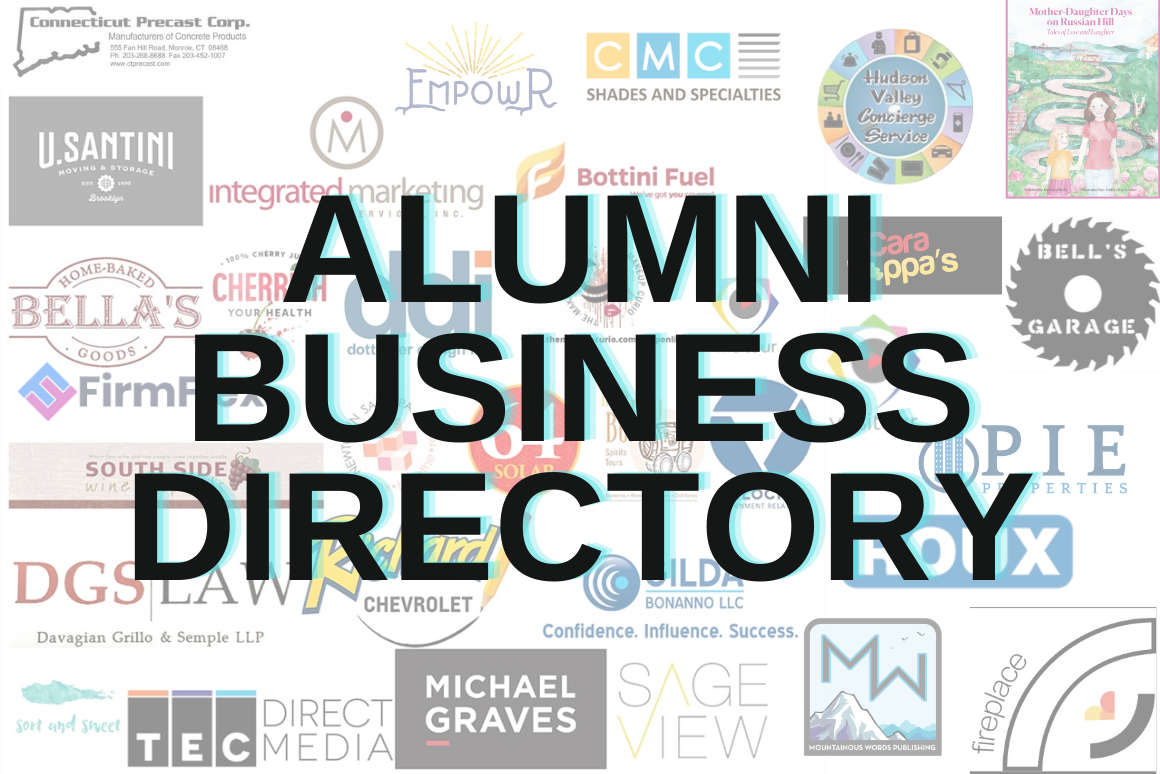
We are excited to offer this online directory of alumni-owned businesses for alumni to list their business and for fellow alumni to support alumni-owned businesses around the world.
We are excited to offer this online directory of alumni-owned businesses for alumni to list their business and for fellow alumni to support alumni-owned businesses around the world.If you are a Marist graduate and own a business or are a partner in a business and you'd like to include it in the business directory, click here to submit your listing.*The Alumni Office has the right to remove a business listing at any time. To search the Alumni Business Directory, click http://maristconnect.marist.edu/businessdirectory.*Terms of UseThe use of information contained within for solicitation or any reason other than supporting a business is strictly prohibited. Marist College does not endorse or make any other representations concerning any of the businesses registered in the Directory.
20 Aug 2021
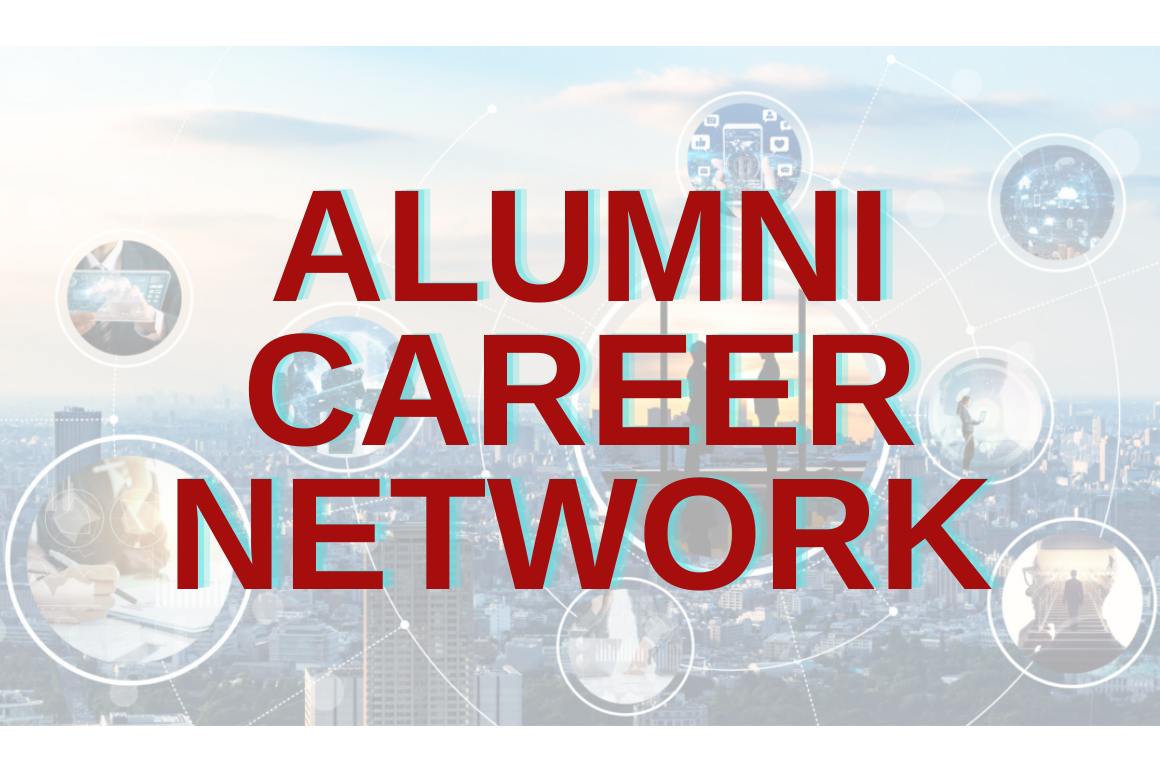
The Alumni Career Network is a password-protected database maintained on the Marist network by both the Office of Alumni Relations and the Center for Career Services.
Marist Alumni Career NetworkThe Alumni Career Network is a password-protected database maintained on the Marist network by both the Office of Alumni Relations and the Center for Career Services. The network contains hundreds of names of individuals who are willing to be contacted by fellow alumni and current students about career choices and paths. You can search the network by occupation type, business title, business name or name of person. By entering the year of graduation or location you will narrow your search. *This network is for business networking purposes only among students, alumni, faculty, and staff. It may not be used for personal or corporate solicitation and contact. Marist College reserves the right to revoke access to any individual at any time. Note: This is a password-protected network. You must use your Marist credentials to log in; all Marist alumni have accounts. If you have not used your account recently or have never used it, please contact the Marist HELP Desk for activation at helpdesk@marist.edu or (845) 575-HELP (4357).Search the NetworkYou do not need to join the network in order to search it. Use your Marist Account to log in. If you don't know your account information, contact the Help Desk at (845) 575-4357. If you have not changed your password recently, you can do so at http://acctmgmt.it.marist.edu/.Join the NetworkThe more alumni who are part of the program the better, so sign up today! You do NOT need to login to your Marist Account to join the network.
20 Aug 2021
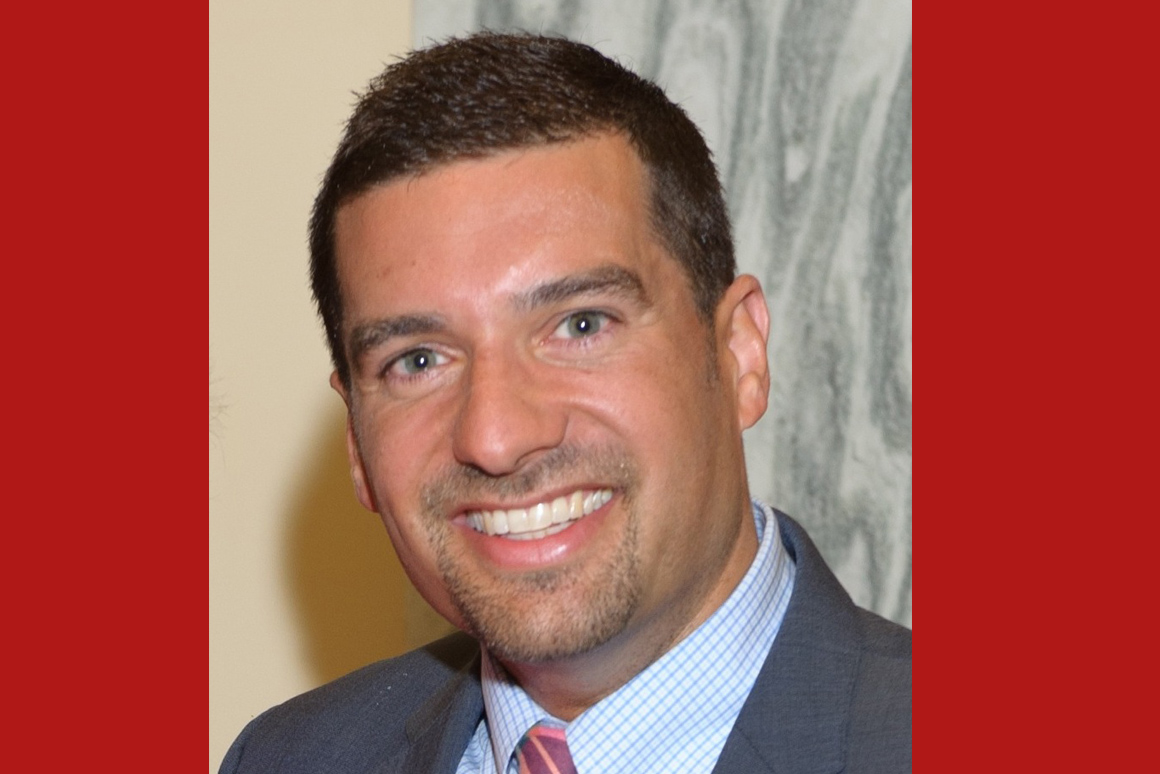
Assisting a foundation in supporting Maine nonprofits.
One reason Justin Burkhardt ’02 took his current job with Harvard Pilgrim Health Care, in Portland, ME, was because the company was “mission-driven,” he says. Throughout the pandemic, he has had an opportunity to support that mission, alleviating food insecurity.Originally from Milford, NH, Burkhardt was a political science and American studies major at Marist. After graduating, he worked for Gov. Jeanne Shaheen, the first female governor of New Hampshire. When Shaheen became a US senator, Burkhardt joined her Washington, DC, staff and served as deputy chief of staff. After six and a half years on Capitol Hill, he relocated to Maine with his partner, David, and took a position as the marketing strategy manager with Harvard Pilgrim, a not-for-profit health care services company based in New England. The company’s mission is to improve the quality and value of health care for the communities it serves throughout the Northeast.His position involves not only developing marketing strategies but also assisting the Harvard Pilgrim Health Care Foundation in supporting Maine nonprofits. One program has been especially meaningful to him: Harvard Pilgrim’s Greater Portland COVID-19 Relief Meal Delivery Project.“During my time at Harvard Pilgrim, I have been involved in dozens of initiatives focused on giving back to the community,” he says. “However, this may be one of the most impactful.”When the COVID-19 pandemic hit in mid-March of 2020, Burkhardt was sent from his Portland office to work from his home in Cape Elizabeth, ME, for the rest of the year. That didn’t stop him from making an impact on his community, though. As part of his work with the foundation, he identified a Portland-based nonprofit, Cooking for Community, worthwhile of support. This newly formed initiative brought together food producers, restaurants, and agencies to ease food insecurity in the state. “Both of our missions aligned to help those in need,” said Burkhardt.Harvard Pilgrim partnered with Cooking for Community and the YMCA of Southern Maine to deliver meals to individuals and families impacted by the pandemic. Cooking for Community coordinated with local restaurants to prepare weekly meals, using many ingredients purchased from local farms. The YMCA of Southern Maine delivered the meals to homes across 24 towns. In its first 11 months of operation, from April 2020 to February 2021, Cooking with Community served more than 92,000 meals. Currently 2,200 meals a week are distributed through its partnerships with 20 social service organizations and 20 restaurants, putting dozens of food industry workers back to work.In addition, Burkhardt reached out to Maine’s nonprofit community to raise awareness about additional grant opportunities through the Harvard Pilgrim Foundation. From March to July 2020, the foundation gave more than $1.7 million in COVID-19 relief grants to help more than 70 small and large nonprofits throughout the state of Maine. “It feels,” said Burkhardt, “like we made a positive impact.”
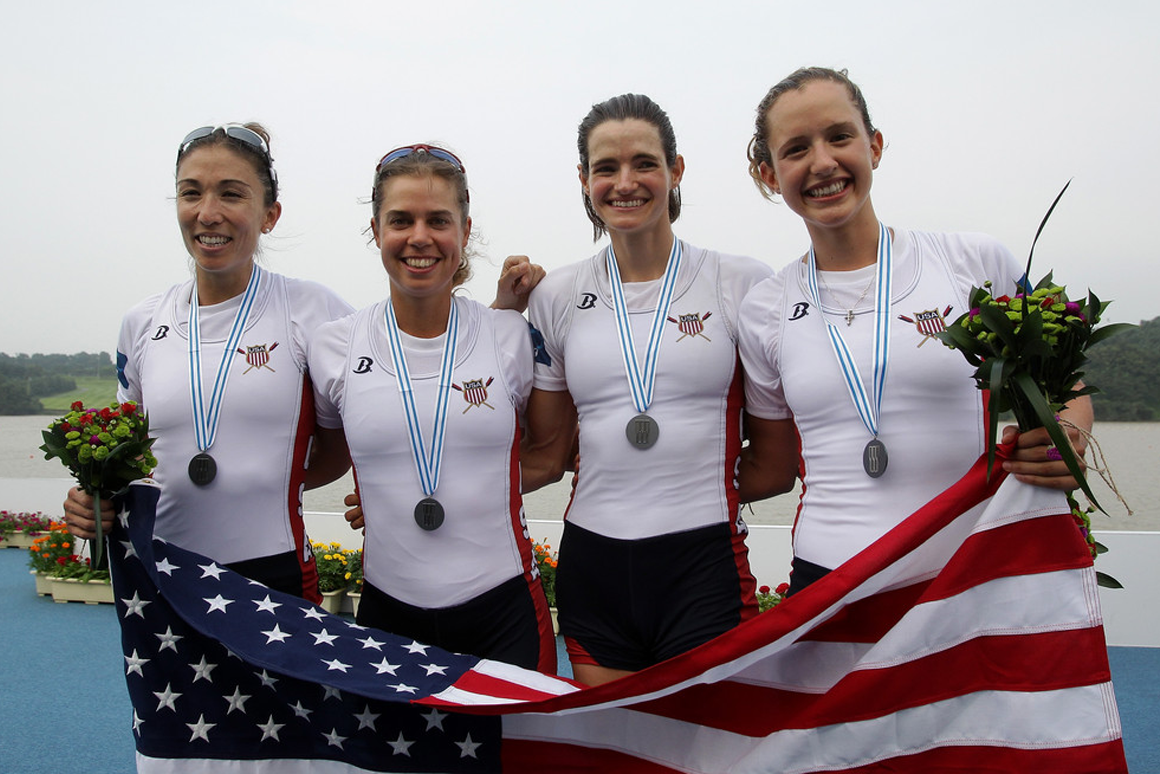
Former Marist rower Hillary Saeger ’07 made the leap from the river to the ocean when she was asked to join the USRowing Coastal Development Group this past February.
Former Marist rower Hillary Saeger ’07 made the leap from the river to the ocean when she was asked to join the USRowing Coastal Development Group this past February. In contrast to traditional Olympic-style rowing, coastal rowing takes place in the rougher waters of the coastline and ocean. Competitors must deal with not only the surf but also other challenges that occur in open waters such as tides and currents. In her role, Saeger hopes to lead the way for the transition from traditional to coastal rowing and to make it more accessible for all athletes. “We want everyone to have the opportunity to try coastal rowing and take it to any level they want to,” explained Saeger. She noted that participants are hoping to increase interest in the sport in anticipation of its entry into the Olympics in 2028 Los Angeles. “I am looking forward to getting someone into a coastal boat for the first time and showing them what it's all about and how much more interesting it can be than traditional rowing,” she said.After graduating from Marist, Saeger returned to Boston, where she joined Riverside Boat Club and learned to scull. She trained for her first national team selection race two years after graduating. “I made the national team in 2009 in the lightweight women's quad and went on to place third at the world champs that year. After that, I stayed in the rowing community in Boston and went on to make a total of seven national teams, and earned three Worlds medals.” She took a break from lightweight rowing in 2019 and instead trained for the Coastal World Championships in Hong Kong, where she raced in the double and quad, placing fifth and sixth respectively.Saeger’s favorite rowing memory is from a race in Bled, Slovenia, for the World Championships in 2011. “I was in the lightweight women's quad and we were getting faster each race we did there and made it into the A final. During the A final race, in the last 500 meters, our stroke seat let out a roar and the whole boat just started moving faster. We finished and we were looking at the giant TV screen awaiting results. We got third by a tenth of a second and we all rejoiced together. All of my favorite memories involve working in a tight group and making something amazing happen because everyone is working together and trusts one another. That's when anything is truly possible.”Saeger was also named to the MAAC's 40th anniversary women’s rowing team, which highlights some of the top rowers in MAAC history. “I am honored to be recognized for my achievements over the years,” she says of the experience. “After college it has always felt like a continuum from what I learned at Marist. I took what I learned from rowing in the eight, but most important I took away what a committed group of women can do if they never doubt what they can achieve together. We were never the tallest, strongest, or most technical boat out racing but we definitely had the biggest heart, and that is what made our boat most successful. I hope my achievements can be shared with everyone I have rowed with at Marist and inspire others to keep going for their goals and dreams no matter what the odds seem against you.”
21 Jul 2021
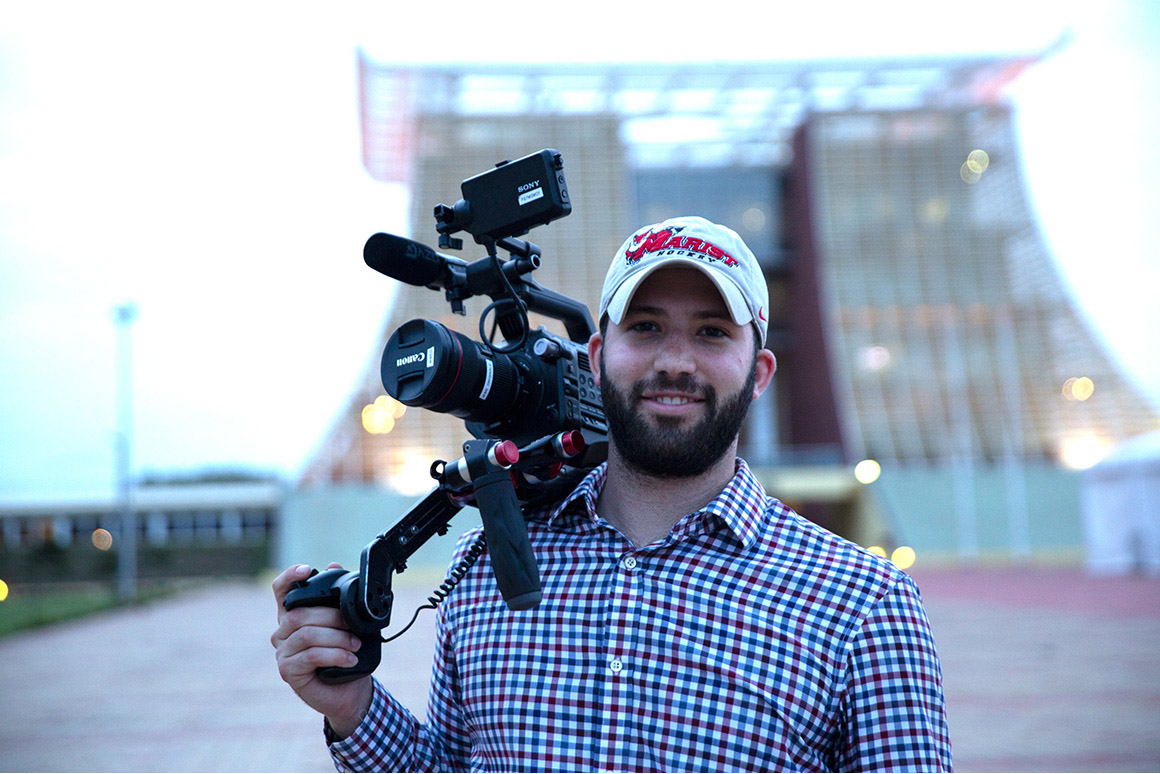
Graduation was upon him and he was tossing around a few different career ideas that were focused on freelancing.
Graduation was upon him and he was tossing around a few different career ideas that were focused on freelancing. Unsure exactly what he wanted to do, Alec Rizzo ’17 decided to stay in his home state of Connecticut and pursue what he really wanted to do: make films, of any kind, including documentaries. He purchased his own equipment and began to freelance, jumping at any opportunity to gain experience behind the camera. He knew this would get him closer to his ultimate career path in film. After a year of freelancing after graduation, Rizzo landed a position as a production assistant for network content at WWE (World Wrestling Entertainment) in Stamford, CT. The job has provided him with opportunities and travel he could have only imagined.Over the past year or so, Rizzo has traveled all over the country to produce content for the WWE Network’s original programming, including WWE24, a series of documentaries that chronicle a WWE superstar. One afternoon, he was heading to lunch when his boss, Dan Pucherelli ’02, approached him. “Hey, how do feel about traveling to Africa?” Pucherelli said. Without hesitation, Rizzo said yes, not only to gain experience, but also to embrace the opportunity to capture the culture, upbringing, and career of Kofi Kingston, WWE superstar and WWE champion at the time. The trip would be highlighted in the documentary WWE24 Kofi Kingston: The Year of Return, one of the many documentaries available on the WWE Network.Rizzo’s first step was to get his passport as he had never traveled out of the country. The trip began on May 29, 2020, with an overnight flight to Africa. Going to Ghana was a true homecoming experience for Kingston, his first visit back to his home country in 26 years, since leaving for the United States with his family as a child. With Kingston holding his first WWE championship title, it made for an even more dramatic return. While in Ghana, the film crew traveled to many villages and cities, witnessing a hero’s welcome for Kingston at nearly every stop over the course of the four-day trip. Rizzo and the film crew documented the entire trip, including Kingston meeting the president and king of Ghana. “I’d do it all again,” said Rizzo of the experience and knowledge he gained not only professionally but personally in learning about the culture and history of Ghana. Following Rizzo’s trip to Ghana, his position has taken him to Des Moines, IA, Charlotte, NC, Chicago, IL, and Houston, TX, just to name a few. Rizzo knew before graduating from Marist that he wanted to be involved in filmmaking. “If you told me at graduation I’d be doing this, I’d say perfect, it’s exactly what I want to do. It didn’t happen right after graduation. I had to go and find it.” He credits Marist for the internship opportunities and the hands-on classes that provided him with the skills and knowledge to “get out there” and freelance after graduation. More specifically, he recalls Jeff Bass’s class in Avid Media Composer, an industry standard for film and video editing. “I always had the confidence as soon as I got the camera in my hand that I’d be fine, I could do it, because of Marist.” His freelance work provided him the opportunity at WWE, but ultimately, it was Marist that set the foundation he needed. “I don’t think anything I’ve done is significantly special or is out of reach for anyone at Marist right now. Anyone can do what I did and am doing. There’s so much to do and learn at WWE,” he said. “You have to want it and have the passion for what you want to do.”
21 Jul 2021